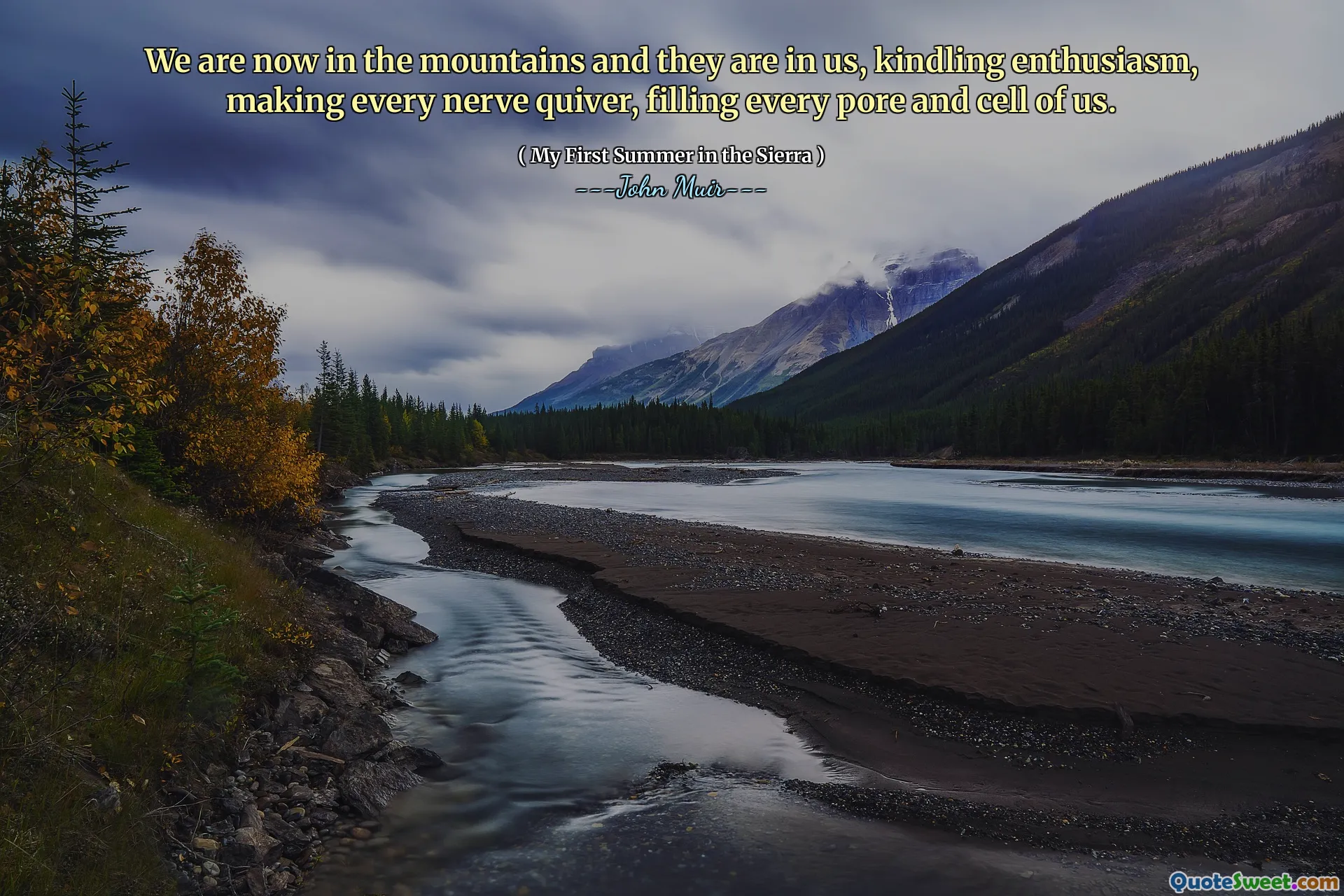
We are now in the mountains and they are in us, kindling enthusiasm, making every nerve quiver, filling every pore and cell of us.
John Muir’s words beautifully encapsulate the profound connection between humans and nature. When he describes being in the mountains, not as a distant observer but as an integral part of the landscape, it evokes a sense of harmony and unity. This perspective invites us to consider that nature is not merely an external setting to visit but an intrinsic part of our being. The phrase "mountains are in us" suggests that natural beauty and raw wilderness ignite within us a powerful emotional response—kindling enthusiasm and stirring our inner depths.
This reflection resonates deeply with the human experience of encountering awe-inspiring natural environments. The mountains' grandeur has the ability to awaken a sense of wonder, humility, and vitality that transcends everyday life. When Muir mentions that every nerve quivers and cells fill up, it underscores how profoundly nature can influence our physical and emotional states, revitalizing our spirits.
Such a perspective also encourages a reverence for the natural world and supports the idea that our well-being is interconnected with the environment around us. It challenges us to view preserving these majestic landscapes as a way to nurture ourselves, as they serve as catalysts for inspiration and renewal. Walking among mountains, feeling their silent strength, and recognizing their presence within us can foster a sense of responsibility to protect these sacred places.
In today’s fast-paced, technology-driven world, Muir’s words serve as a timeless reminder: engaging with nature isn’t just leisure — it’s a vital act of reconnecting with our core essence. Whether we find peace, excitement, or clarity among these peaks, they undeniably shape and fill us with energy that sustains and invigorates our lives.




